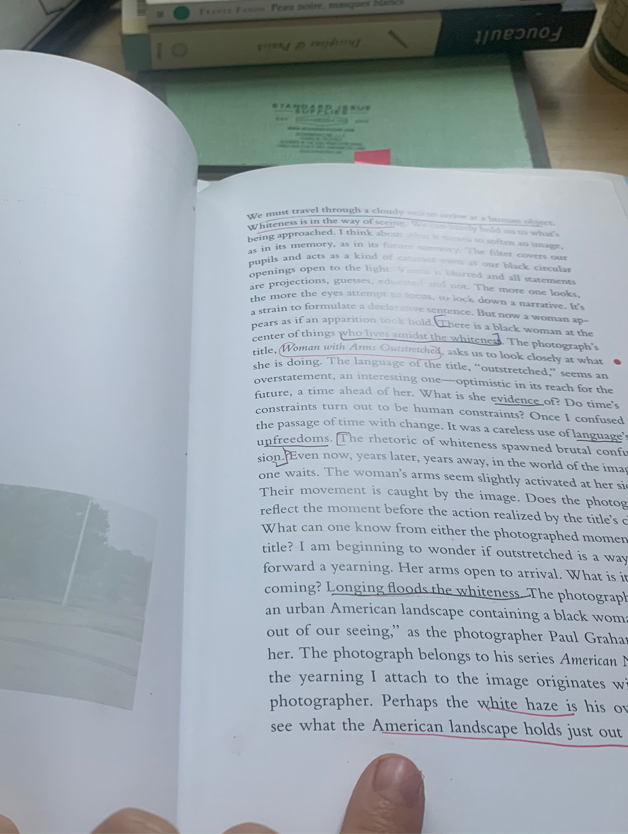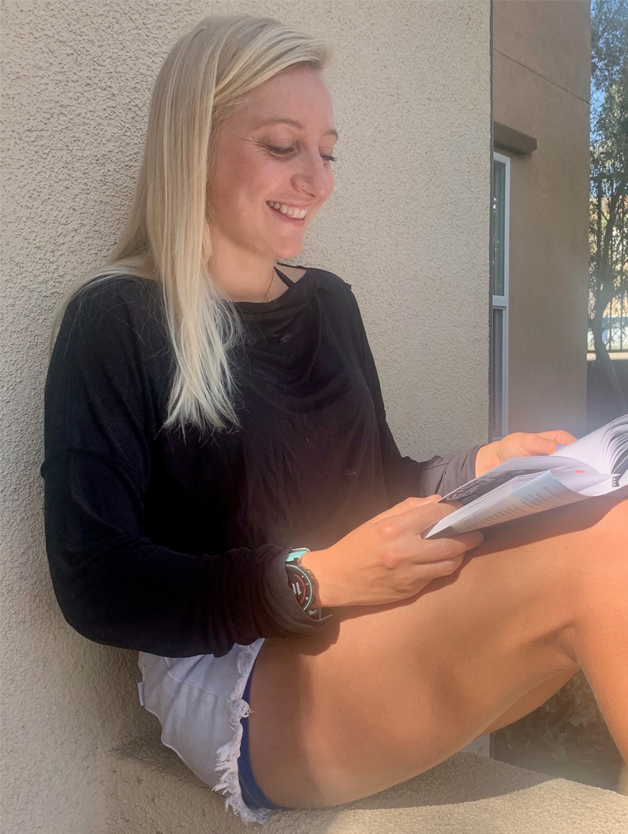Claudia Rankine’s Just Us

This September, decorated poet, certified genius, and former Pomona College professor, Claudia Rankine released her highly anticipated Just Us: An American Conversation (Graywolf, 2020). As the subtitle indicates, Just Us is an extended, open-ended conversation. The text asks us what conversation can do, what work must be done to even arrive at the point where we can honestly speak to one another, and how can an exchange of words bring us closer to one another; how it can bring us closer to justice.
Just Us is born of, and arrives in, a moment in which the need for conversation and the question of what conversations can change. Since the 2016 election, the difference between white America’s fantasies and assumptions about the United States, and the reality of the country where we live has been starkly and consistently exposed. The summer of 2020 saw the public witnessing of extra-juridical and state sanctioned murders of Black people, marking a moment that deadly consequences of the disparity between white people’s and BIPOC folks’s experience of reality and understanding of history generated a national recognition of the desperate need for conversation. These conversations—interpersonal, public, familial, and national—have been messy and tense, but have been imperative to expose truths that have been hidden and forgotten, and to close the seemingly unbroachable gulf between us.
Just Us undertakes this. Through speaking with and to other Americans about whiteness, Rankine attempts to uncover how this gap in knowing, these divergent realities, are produced and reified every day, and how challenges to white fantasies are so easily forgotten and denied. Just Us is an attempt to wade through and disrupt the obfuscation that whiteness generates in order to approach one another as people: “We must travel through a cloudy veil to arrive at a human object. Whiteness is in the way of seeing” (87).
In a 2014 interview with CGU’s graduate student poetry journal, Foothill Poetry Journal, the editors asked Rankine about her acclaimed books of poetry Don’t Let Me Be Lonely and Citizen. Rankine describes both as interested in: “considering things from the position of being an American citizen through an emotional lens . . . they’re interested in what feeling these big issues elicits in ordinary, individual bodies…[they’re] about internal distress, internal positioning, internal and private negotiation of what is unbearable in our world.” Just Us, too, is interested in understanding what these big issues feel like, but the shift from An American Lyric to An American Conversation also connotes a move to dialogue – to engagement with the other, the external. Rankine’s negotiation of the unbearable in Just Us spurs her into conversation, into an inquiry of the possibility of speaking to, and hearing from another, and the question of what this listening could change. Rankine asks over and over: “what if”; what if these conversations could lead us to discover something new—a way to move forward, to move closer to each other, news pathways to a future that seems impossible in our present.
The expansive and complex content of Just Us—how whiteness is produced historically and how it is enacted daily, with what effects—is complemented by a diversity of forms. The book is composed of prose, poems, photos, letters and emails from friends and acquaintances, often footnoted with marginal red dots that lead the reader to evidence on the opposite page—photos, social media posts, demographic charts, or context to an Eduard Glissant quote. With frequent citations and this marginal evidence, Rankine builds a foundation of shared knowledge that her readers need to be join her within the reality that she is exploring, a reality composed of the things she sees, hears, reads and says. We need this shared knowledge—whether its historical context around how white standards of beauty shaped printing and camera settings or a photo of a 2018 cross burning; to participate in the conversation she wants to have. Lineated poems permeate the text and inturrupt the flow of the prose, offering the space and time to sit with and think about the emotion that is produced within the essayistic conversations that surround it. Rankine, citing affect theorist Lauren Berlant, muses on the need to incorporate pauses and the demands of emotion in conversation: “real thinking… ‘interrupts the flow of consciousness with a new demand . . . to be forced into thought is to begin to formulate the event of feeling historical in the present” (329).

This text takes seriously the practice of wondering, and of arriving at a conversation without anticipating what the other is going to say before they’ve said it. Witnessing how terms like privilege can mean dramatically different things depending on one’s race or positionality, she refuses the ease of commonly used terms: “these agreed upon terms prevent us from stumbling into moments of real recognition” (39). Rankine asks us to question the mutable meanings of words we think we know, and the stories we tell ourselves with them, instead asking us to approach the text prepared and willing to be surprised: “I wanted to learn something that surprised me about the stranger, something I couldn’t have known beforehand” (45). This is not a desire limited to her listening however, she awaits a response:
What I want from you is new, newly made
A new sentence in response to all my questions
A swerve in our relations and the words that carry us,
The care that carries. I am here, without a shrug
Attempting to understand how what I want
And what I want from you run parallel
–justice and openings for just us (11).
The tendency to interpret a person before they have arrived has violent and often deadly consequences for Black people, and this knowledge also pervades the text; Rankine wants a world in which justice is no longer impossible for people of color. As a Black woman, and especially as a Black woman approaching and questioning white men, Rankine is aware of the precarity that her race and gender place her in in relation to the task of uncovering what whiteness obscures. She tends to find white men in the liminal spaces of the airport or airplane; when movement and displacement disrupt the stasis that racial divides create, and she is aware of the risk she takes in insisting these men engage with her humanity: “To let me in was a disturbance of racial relations in a lifetime of segregation” (55).
And yet, there is an extraordinary curiosity and patient deliberation in Rankine’s writing, in spite of, or perhaps because of the urgency of her project. She needs to explore how the desire for justice and the ability to see and be seen beyond the haze that whiteness creates, align and intersect or how they fail to.

What I know is that an inchoate desire for a future other than the one that seems to be forming our days brings me to a seat around any table to lean forward, to hear, to respond to await response from another.
Tell me something, one thing, the thing, tell me that thing (335).
We may not know what the thing is we want to hear, but Rankine shows us how to keep looking for it. Just Us does not offer completeness, but rather a ceaseless call to wonder “what if”: what if we try to understand? What if it doesn’t change anything? What if it did?
—Lilly Fisher
Share